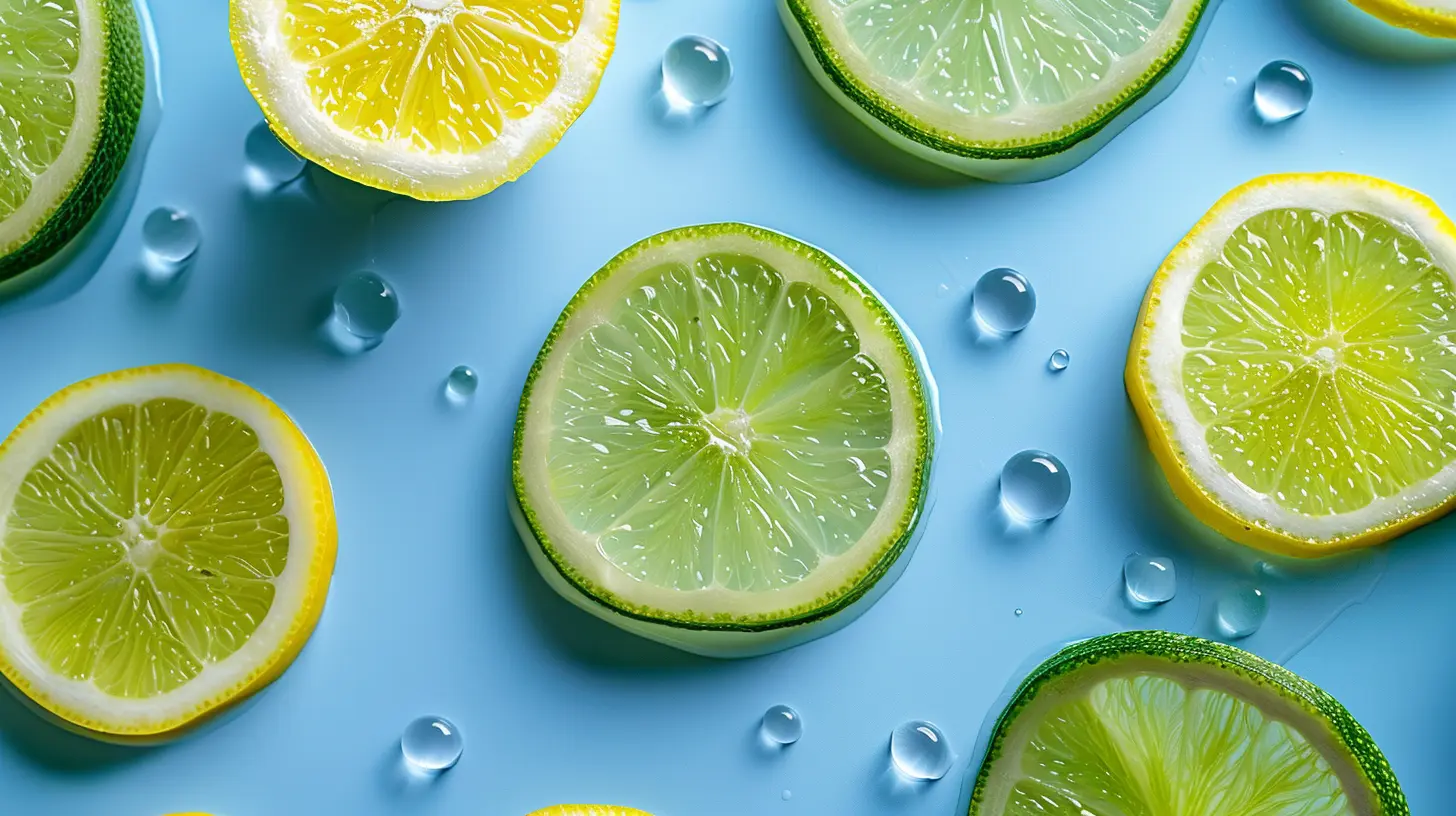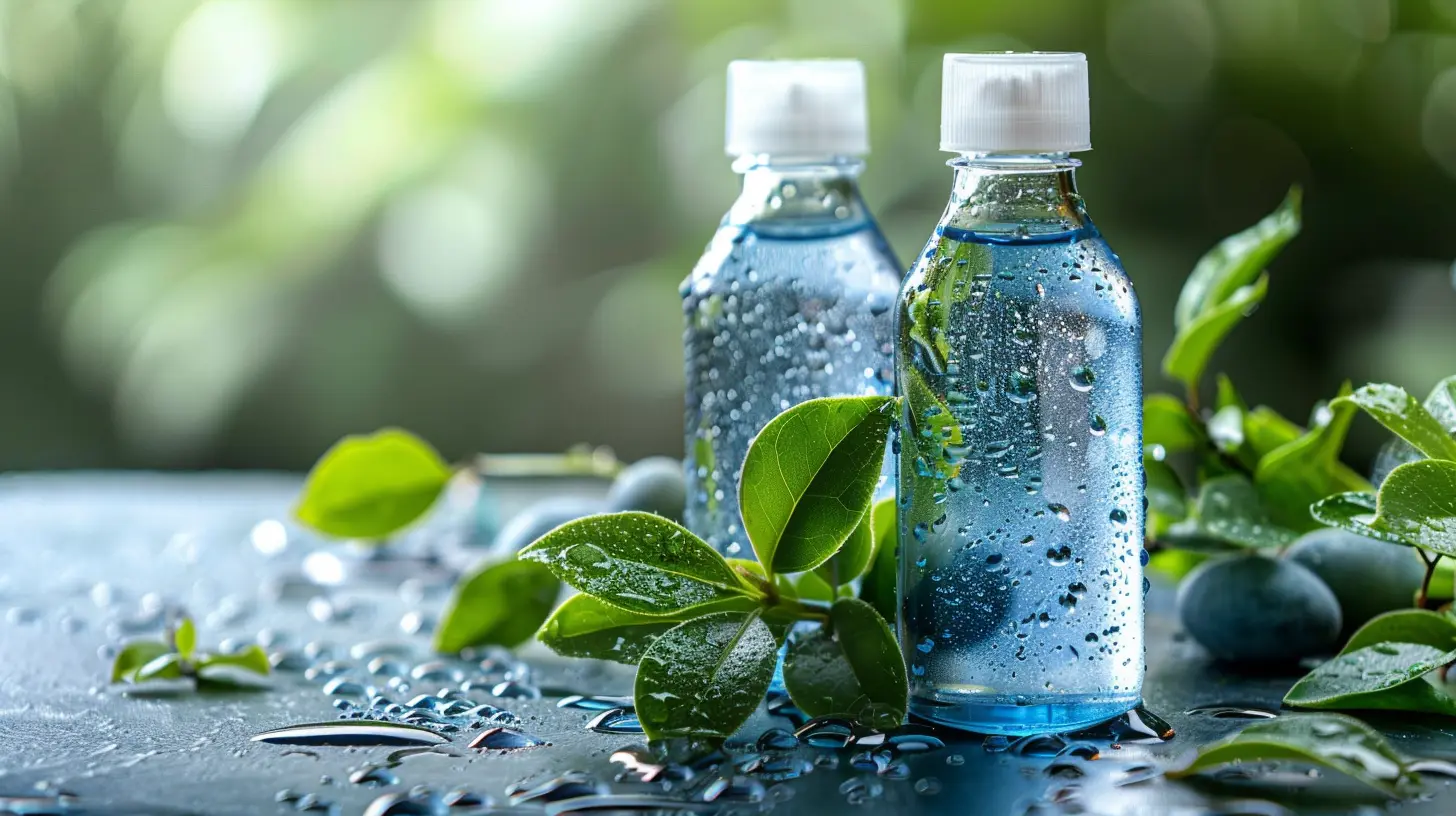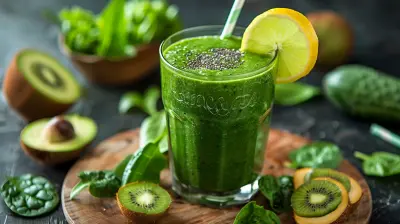The Science Behind Hydration and Your Skin
24 June 2025
Hydration is the foundation of healthy, glowing skin. We often hear that drinking enough water is essential for overall well-being, but do we truly understand how hydration affects our skin? From reducing wrinkles to preventing dryness, proper hydration plays a crucial role in maintaining a radiant complexion.
In this article, we'll dive into the nitty-gritty of hydration, how it impacts your skin on a cellular level, and debunk some common myths. So, grab a glass of water and let's get started!

Why Is Hydration Important for Your Skin?
Your skin is the largest organ in your body, and just like any other organ, it relies on water to function properly. Think of your skin as a sponge—when it's well-hydrated, it looks plump, smooth, and healthy. But when it's dry, it becomes rough, flaky, and prone to fine lines.Water helps your skin in several ways:
- Keeps skin cells functioning properly
- Maintains elasticity and prevents premature aging
- Flushes out toxins that contribute to breakouts
- Supports the skin barrier, preventing moisture loss
But hydration isn’t just about drinking water—your skin needs both internal and external hydration to stay in top shape.

How Dehydration Affects Your Skin
Dehydration wreaks havoc on your skin, making it appear dull and tired. When you don’t drink enough water, your body prioritizes essential organs like your heart and brain, leaving your skin in the dust. This leads to:1. Dullness and Rough Texture
Without enough moisture, your skin loses its radiant glow. Dead skin cells build up, leading to a rough and uneven texture.2. Increased Wrinkles and Fine Lines
Water plumps up your skin cells, making fine lines less visible. When you’re dehydrated, your skin loses elasticity, causing wrinkles to appear more pronounced.3. Excess Oil Production
Ironically, dehydration can make oily skin worse. When your skin lacks moisture, it compensates by producing more oil, which can clog pores and trigger acne breakouts.4. Loss of Skin Elasticity
A simple way to check if your skin is dehydrated? Try the pinch test—pinch a small section of your skin on the back of your hand or cheek. If it doesn’t snap back quickly, your skin is thirsty!
Drinking Water vs. Topical Hydration: What Works Best?
There's an ongoing debate about whether drinking water alone is enough to keep your skin hydrated. The truth? It’s a little more complicated than just guzzling eight glasses a day.The Role of Drinking Water
Drinking water is essential for overall health, but only a fraction of it reaches your skin. Your body prioritizes hydration for vital organs first, meaning your skin gets whatever is left. However, staying well-hydrated internally does help in the long run by supporting blood circulation and flushing out toxins.The Importance of Topical Hydration
Since drinking water alone isn’t enough, you need to lock in moisture with hydrating skincare products. Look for ingredients like:- Hyaluronic Acid – A moisture magnet that holds up to 1,000 times its weight in water
- Glycerin – A humectant that draws water into the skin
- Ceramides – Strengthen the skin barrier and prevent moisture loss
- Aloe Vera – Soothes, hydrates, and reduces inflammation
Combining internal hydration with external moisturization is the best way to keep your skin soft, supple, and radiant.

The Science Behind Hydration and Skin Health
Water plays a critical role in skin health at a cellular level. Your skin consists of three layers:1. Epidermis (Outer Layer) – Protects against environmental damage
2. Dermis (Middle Layer) – Contains collagen, elastin, and blood vessels
3. Hypodermis (Deepest Layer) – Stores fat and provides insulation
When you're dehydrated, the epidermis struggles to maintain moisture, leading to dryness, irritation, and breakouts. On the flip side, well-hydrated skin maintains its elasticity, resilience, and barrier function.
How Hydration Impacts Collagen Production
Collagen is the protein responsible for keeping our skin firm and youthful. When you're dehydrated, collagen fibers weaken, making your skin more prone to sagging and wrinkles. Drinking enough water and using hydrating skincare products help maintain collagen levels, keeping your skin bouncy and smooth.Common Myths About Hydration and Skin
There’s a lot of misinformation out there about hydration and skincare. Let’s clear up some common myths!Myth 1: "Drinking 8 Glasses of Water a Day Guarantees Hydrated Skin"
While staying hydrated is important, water intake alone won’t solve all your skin concerns. External hydration and a proper skincare routine are equally essential.Myth 2: "Oily Skin Doesn’t Need Hydration"
Big mistake! Oily skin can still be dehydrated, leading to excess sebum production. The key is using lightweight, hydrating ingredients like hyaluronic acid instead of heavy creams.Myth 3: "You Can Hydrate Your Skin Just by Splashing Water on It"
Water alone evaporates quickly, often leaving your skin drier than before. To lock in moisture, always apply a hydrating serum or moisturizer right after washing your face.
How to Keep Your Skin Hydrated
Now that we know hydration is key, let’s talk about practical ways to keep your skin hydrated all day long.1. Drink Water (But Don’t Overdo It!)
Aim for at least 2-3 liters a day, but remember that foods like cucumbers, watermelon, and oranges also contribute to hydration.2. Use a Hydrating Moisturizer
Look for moisturizers with hyaluronic acid, ceramides, and glycerin to reinforce your skin’s natural barrier.3. Apply a Hydrating Serum
Serums penetrate deeper into the skin. A hydrating serum before your moisturizer can maximize moisture retention.4. Don't Overwash Your Face
Washing too frequently strips your skin of natural oils. Stick to twice daily cleansing with a gentle, hydrating cleanser.5. Use a Humidifier
Especially in dry climates or during winter, a humidifier adds moisture to the air, preventing your skin from drying out.6. Protect Your Skin Barrier
Avoid harsh skincare products with alcohol, sulfates, and excessive exfoliation—these can weaken your skin’s ability to retain moisture.Final Thoughts
Hydration is the secret to radiant, healthy skin, but it takes a combination of internal and external efforts. Drinking plenty of water, using the right skincare products, and protecting your skin barrier will keep you glowing all year round.Now that you know the science behind hydration and your skin, are you ready to make hydration a daily priority? Your skin will thank you!
all images in this post were generated using AI tools
Category:
Skin CareAuthor:

Madeline Howard
Discussion
rate this article
2 comments
Wesley Snow
Great article! Staying hydrated is essential for maintaining healthy skin. Clear and informative insights on the connection between hydration and skin health.
October 15, 2025 at 4:15 AM

Madeline Howard
Thank you! I'm glad you found the insights helpful. Staying hydrated truly plays a vital role in skin health!
Rune McCarthy
This article effectively highlights the crucial link between hydration and skin health. It emphasizes how staying well-hydrated can improve skin elasticity and appearance. I appreciate the scientific backing and practical tips provided. It's a timely reminder to prioritize hydration for both overall wellness and a radiant complexion.
June 30, 2025 at 2:37 AM

Madeline Howard
Thank you for your insightful feedback! I'm glad you found the article informative and helpful for enhancing skin health through hydration.


